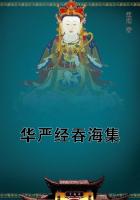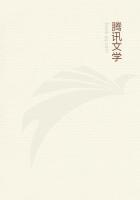Memory is not to be explained as the retaining of information in virtue of the lingering of an impression which in fact was never made;the two things stand or fall together; either an impression is made upon the mind and lingers when there is remembrance, or, denying the impression, we cannot hold that memory is its lingering.Since we reject equally the impression and the retention we are obliged to seek for another explanation of perception and memory, one excluding the notions that the sensible object striking upon soul or mind makes a mark upon it, and that the retention of this mark is memory.
If we study what occurs in the case of the most vivid form of perception, we can transfer our results to the other cases, and so solve our problem.
In any perception we attain by sight, the object is grasped there where it lies in the direct line of vision; it is there that we attack it; there, then, the perception is formed; the mind looks outward; this is ample proof that it has taken and takes no inner imprint, and does not see in virtue of some mark made upon it like that of the ring on the wax; it need not look outward at all if, even as it looked, it already held the image of the object, seeing by virtue of an impression made upon itself.It includes with the object the interval, for it tells at what distance the vision takes place: how could it see as outlying an impression within itself, separated by no interval from itself? Then, the point of magnitude:
how could the mind, on this hypothesis, define the external size of the object or perceive that it has any- the magnitude of the sky, for instance, whose stamped imprint would be too vast for it to contain? And, most convincing of all, if to see is to accept imprints of the objects of our vision, we can never see these objects themselves; we see only vestiges they leave within us, shadows: the things themselves would be very different from our vision of them.And, for a conclusive consideration, we cannot see if the living object is in contact with the eye, we must look from a certain distance; this must be more applicable to the mind;supposing the mind to be stamped with an imprint of the object, it could not grasp as an object of vision what is stamped upon itself.
For vision demands a duality, of seen and seeing: the seeing agent must be distinct and act upon an impression outside it, not upon one occupying the same point with it: sight can deal only with an object not inset but outlying.
2.But if perception does not go by impression, what is the process?
The mind affirms something not contained within it: this is precisely the characteristic of a power- not to accept impression but, within its allotted sphere, to act.
Besides, the very condition of the mind being able to exercise discrimination upon what it is to see and hear is not, of course, that these objects be equally impressions made upon it; on the contrary, there must be no impressions, nothing to which the mind is passive;there can be only acts of that in which the objects become known.
Our tendency is to think of any of the faculties as unable to know its appropriate object by its own uncompelled act; to us it seems to submit to its environment rather than simply to perceive it, though in reality it is the master, not the victim.
As with sight, so with hearing.It is the air which takes the impression, a kind of articulated stroke which may be compared to letters traced upon it by the object causing the sound; but it belongs to the faculty, and the soul-essence, to read the imprints thus appearing before it, as they reach the point at which they become matter of its knowledge.
In taste and smell also we distinguish between the impressions received and the sensations and judgements; these last are mental acts, and belong to an order apart from the experiences upon which they are exercised.
The knowing of the things belonging to the Intellectual is not in any such degree attended by impact or impression: they come forward, on the contrary, as from within, unlike the sense-objects known as from without: they have more emphatically the character of acts; they are acts in the stricter sense, for their origin is in the soul, and every concept of this Intellectual order is the soul about its Act.
Whether, in this self-vision, the soul is a duality and views itself as from the outside- while seeing the Intellectual-Principal as a unity, and itself with the Intellectual-Principle as a unity- this question is investigated elsewhere.
3.With this prologue we come to our discussion of Memory.
That the soul, or mind, having taken no imprint, yet achieves perception of what it in no way contains need not surprise us; or rather, surprising though it is, we cannot refuse to believe in this remarkable power.
The Soul is the Reason-Principle of the universe, ultimate among the Intellectual Beings- its own essential Nature is one of the Beings of the Intellectual Realm- but it is the primal Reason-Principle of the entire realm of sense.
Thus it has dealings with both orders- benefited and quickened by the one, but by the other beguiled, falling before resemblances, and so led downwards as under spell.Poised midway, it is aware of both spheres.
Of the Intellectual it is said to have intuition by memory upon approach, for it knows them by a certain natural identity with them;its knowledge is not attained by besetting them, so to speak, but by in a definite degree possessing them; they are its natural vision;they are itself in a more radiant mode, and it rises from its duller pitch to that greater brilliance in a sort of awakening, a progress from its latency to its act.















